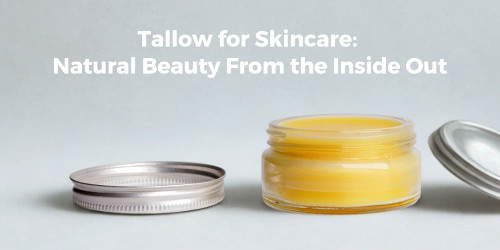Why Vitamins and Minerals are Essential to Your Body
As we grow older our body weakens and the need of vitamins and minerals is a must to fuel our immune system. Vitamin deficiency can lead to a variety of health problems such as fatigue, weak bones, dry skin and hair, depression, poor wound healing, a decreased immune system, and more. Here are some reasons why vitamins and minerals are important:
1. Boosts Immune System: Vitamins and minerals help to strengthen the immune system, which is important for fighting off infections and diseases.
2. Promotes Healthy Bones: Vitamins and minerals such as calcium, vitamin D, and magnesium are important for maintaining strong bones and preventing osteoporosis.
3. Supports Heart Health: Vitamins and minerals such as vitamin E, vitamin C, and potassium are important for maintaining a healthy heart and reducing the risk of heart disease.
4. Improves Brain Function: Vitamins and minerals such as omega-3 fatty acids, vitamin B12, and iron are important for maintaining good brain function and preventing cognitive decline.
5. Enhances Energy Levels: Vitamins and minerals such as iron, vitamin B12, and magnesium are important for maintaining energy levels and preventing fatigue.
There are 13 essential vitamins that our body needs, including vitamins A, C, D, E, K, and the B vitamins. Each vitamin has a specific function in the body, such as helping with vision, immune function, bone health, and energy production.
Minerals are also important for our health, and there are many different types that our body needs, including calcium, iron, magnesium, potassium, and zinc. Minerals are involved in many bodily functions, such as building strong bones, regulating blood pressure, and maintaining a healthy immune system.
While it's best to get vitamins and minerals from a balanced diet, sometimes supplements may be necessary. However, it's important to talk to a healthcare professional before taking any supplements, as some can interact with medications or cause side effects.
What are the important Vitamins you need to take and why?
They are Vitamin A, Vitamin B, Vitamin C, Vitamin D, Iron, Folic Acid, Omega-3 Fatty Acids, and Calcium. Article: Medikeeper, Vitamins You Should Be Taking
Vitamin A - boosts your immune system and is essential for your eyesight and reproductive system. Naturally, you can get this from milk, eggs, broccoli, leafy green vegetables, orange and red vegetables like carrots and squash. Or from Vitamin A Supplements.
Vitamin B - has different subtypes. Please see below:
• Thiamin (Vitamin B1) - Vitamin B1 is found in yeast, cereal grains, beans, nuts, and meat. Thiamine boosts the immune system, has an impact on the health of your nerves, and can increase focus and energy.
• Riboflavin (Vitamin B2) - Vitamin B2 plays a major role in energy production, cell function, growth, and development. It is also important in the metabolism of fats, drugs, and steroids.
• Niacin (Vitamin B3) - Niacin reduces high cholesterol and is used to treat circulation problems, migraines and dizziness.
• Vitamin B6 - Vitamin B6 is particularly important for nerve health.
• Vitamin B12 - Vitamin B12 is important for proper red blood cell formation. A deficiency in Vitamin B12 leads to a type of anemia called cobalamin deficiency. The symptoms are tingling, weakness and numbness.
• You can get a healthy dose of all the B-vitamins by eating more meat, eggs, milk, whole cereal, beans, and nuts.
Vitamin C - known to best treat colds as most doctors recommend. Other than that, Vitamin C is important for wound healing. It acts as an antioxidant helping to protect cells from damage caused by free radicals. Mostly found in many fruits and vegetables including oranges, mangoes, kiwi, and avocado.
Vitamin D - is a special vitamin in that it is present in very few foods. When ultraviolet rays from the sun strike your skin, it triggers Vitamin D synthesis. Once you have Vitamin D synthesized in your body, it helps with the absorption of calcium out of your digestive system and into parts of your body that need calcium like your bones and teeth.
Iron - forms a major part of your red blood cells. The red blood cells are responsible for delivering oxygen from your lungs to the rest of the body. Iron deficiency results in not just anemia but a lack of energy and dizziness because your organs are not receiving enough oxygen. Green leafy vegetables like spinach, lentils, dark chocolate, beef, and broccoli are good sources of iron.
Folic Acid- an essential vitamin for women of childbearing age or pregnant. Lack of folic acid may lead to defects in the development of the brain or spine in babies. Leafy green vegetables, fruits, dry beans, peas, and nuts are rich sources of folic acid.
Omega-3 Fatty Acids - used as an antilipemic (fat-regulating) treatment for people who have high levels of triglycerides (a type of unhealthy fat). Additionally, Omega-3 contributes to better brain, skin, and heart health. A main ingredient in fish oil tablets, and can also be found in fish, seafood, hemp seed, flaxseed, walnuts, and the oils that come from these seeds.
Calcium- a supplement everyone should consider taking daily for strong bones, teeth, and nails. You will find calcium in fortified orange juice, milk, meat, fish, soy and rice drinks, and tofu.
MedCart Australia has a wide range of vitamins and minerals available to purchase online.
Closing Thoughts In conclusion, it's important to get enough of these nutrients through a balanced diet, and supplements may be necessary in some cases. If you have any concerns about your vitamin and mineral intake, talk to a healthcare professional. Your health should always be a top priority.
Sources:
Medikeeper, Vitamins You Should Be Taking















